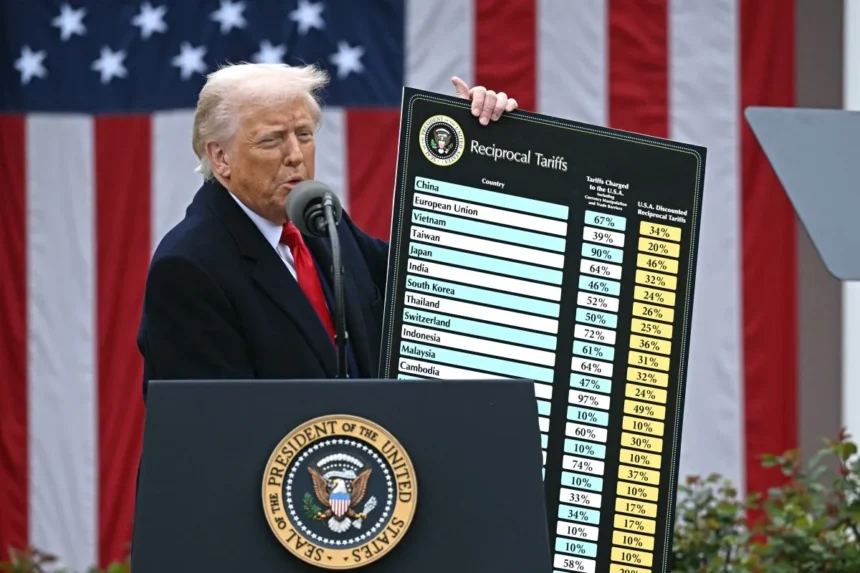The Trump administration finds itself in the crosshairs of a legal battle over its controversial tariffs. On Monday, April 14, 2025, a legal advocacy group asked the US Court of International Trade to block President Donald Trump’s sweeping tariffs on foreign trading partners, arguing the president overstepped his authority.
The US Court of International Trade is now the stage for what could be a landmark case, challenging the very limits of presidential authority.
But first, how did we get here? Remember the “Liberation Day” tariffs announced on April 2nd? A sweeping 10% baseline tariff on imports, with even steeper rates for countries deemed to have “high barriers” to U.S. goods.
The administration justified these measures under the International Emergency Economic Powers Act (IEEPA), a law designed to combat “unusual and extraordinary threats.” However, no president before Trump has ever used this law to impose tariffs. Critics argue this is less about economic strategy and more about political theater.
Read more: President Trump warns No country ‘off the hook’ on US tariffs
The lawsuit, filed by the Liberty Justice Center on behalf of five small businesses, claims the president overstepped his constitutional authority. Senior counsel for the group, Jeffrey Schwab, said, “No one person should have the power to impose taxes with such vast global consequences.”
He added that “The Constitution gives the power to set tax rates, including tariffs, to Congress, not the President.”
The five businesses, ranging from a New York wine importer to a Virginia-based maker of educational kits, say these tariffs are crippling their operations. The lawsuit is seeking the court to block enforcement of the tariffs and declare Trump lacked the authority to impose them.
These tariffs have already sparked a tit-for-tat trade war, with China raising duties on U.S. goods to a staggering 125%. The global dairy market, among others, is bracing for impact. Meanwhile, the White House defends the tariffs as a necessary step to address chronic trade deficits and level the playing field for American workers.
In a statement, the White House spokesman Harrison Fields defended Trump’s tariffs. Fields said, “Never Trumpers will always oppose him, but President Trump is standing up for Main Street by putting an end to our trading partners, especially China, exploiting the United States. His plan levels the playing field for businesses and workers to address our country’s national emergency of chronic trade deficits.”
In a similar lawsuit, a small business owner has asked the Florida federal court to block tariffs imposed on China by the Trump administration.














